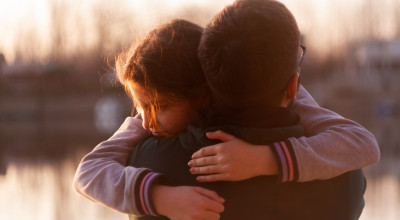Why “Difficult People” Are Often Carrying Trauma, Too
November 21st, 2025
The Viral Quote That Got Everyone Talking
Therapist Patrick Teahan recently went viral for a heartfelt statement about childhood trauma. When asked what he believes is the most common sign, he said:
“For a lot of us, it’s about trying to get a difficult person to be good to us in our adult lives.”
It’s a powerful insight and one that resonates deeply with anyone who has struggled in relationships after a painful upbringing. Teahan explains that many trauma survivors unconsciously try to “fix” people who mirror their parents, hoping that this time, things will turn out differently.
At Windmill Wellness Ranch, we agree that this is a meaningful and accurate observation, but it’s also only half of the story.
The Missing Half of the Conversation
The quote focuses on one side of the equation: the survivor who tries to please, fix, or win over a “difficult person.” What’s often left unsaid is that the difficult person usually has their own trauma, too.
In other words, both people in this painful dynamic are responding to maladaptive beliefs formed in childhood. Common examples include:
- “If I’m good enough, I’ll finally be loved.”
- “People always leave, so I need to control the situation.”
- “My worth depends on what I do for others.”
These distorted thought patterns grow out of early experiences with chaos, neglect, criticism, or emotional absence. Over time, they can lead to behaviors that look “toxic” from the outside, but inside, they’re really survival strategies that started as a child’s attempt to stay safe.
The Real “Most Common Sign” of Childhood Trauma
If we look at the research, the most consistent effect of early trauma isn’t just poor relationships. It is maladaptive core beliefs that distort how we see ourselves and others.
A 2020 meta-analysis in Clinical Psychology & Psychotherapy found that trauma exposure was strongly linked to negative self-talk like shame, unworthiness, and distrust [1]. These cognitive distortions predict later anxiety, depression, and substance use disorders/addiction.
Similarly, a 2025 study in Child Abuse & Neglect found that childhood emotional abuse led to internalized blame and guilt [2]. In short: trauma teaches the wrong lessons about love, safety, and identity.
That’s why at Windmill, we often say: “It’s not what happened to you, it’s what you tell yourself about it.” Mistaken negative beliefs fuel the emotional pain that drives both trauma reenactment and addiction.
Trauma, Beliefs, and Addiction
Addiction doesn’t happen in a vacuum. Studies continue to show that adverse childhood experiences (ACEs) dramatically raise the risk for substance use and mental health disorders later in life [3].
At Windmill, we see this play out every day. Many of our clients arrive believing they are the “problem” in every relationship or that they must earn love through self-sacrifice. When those beliefs meet substances that numb pain or boost confidence, the cycle deepens. Healing means addressing both the neurobiological effects of trauma and the belief systems that grew out of it.
How Trauma Affects Behavior
“Difficult” often means hurting. Here are common trauma responses in relationships:
- Fight: anger, control, criticism.
- Flight: avoiding talks, overworking, leaving early.
- Freeze: numbness, silence, indecision.
- Fawn: people-pleasing to keep the peace.
These patterns explain how trauma affects behavior and why difficult personalities repeat the same moves even when they want change.
Signs of Emotional Trauma
Clues of unresolved trauma in adults include:
- Big reactions to small triggers.
- Black-and-white thinking about people.
- Shame or self-blame after conflict.
- Fear of abandonment, jealousy, or hyper-vigilance.
- Numbing with substances, food, or screens.
When several show up often, it is likely relationship trauma that needs care, not “bad character.”
Compassion Without Enabling
There’s an important distinction between understanding and tolerating harmful behavior. Recognizing that someone’s difficult behavior stems from trauma doesn’t mean accepting abuse or chaos. Boundaries are essential. But so is empathy.
The viral message of “get away from toxic people” might feel empowering, and sometimes it’s absolutely necessary for safety. But it risks oversimplifying a complex truth: difficult people are often hurting people. And we’re all capable of being someone else’s “difficult person” when our own wounds are unhealed.
Healing at the Source
At Windmill Wellness Ranch, we help clients move beyond black-and-white thinking about trauma. Our trauma-informed treatment model integrates:
- Brain Frequency’s EEG-based brain mapping and individualized TMS to restore neural balance
- Family therapy to repair systemic trauma patterns
- Addiction recovery programming rooted in evidence-based neuroscience
This combination helps clients understand why they act or react the way they do, and how to create new, healthier belief systems rooted in self-compassion rather than self-protection. That’s how we get some of the best results in the nation.
The Takeaway
The most common sign of childhood trauma isn’t just trying to fix difficult people or getting their approval. It is living under the weight of distorted beliefs about our own worth. When those beliefs go unhealed, they shape our relationships, our emotions, and our risk for addiction.
Healing begins when we stop asking, “What’s wrong with me or them?” and start asking, “What happened to us, and what can we do to heal it?”
At Windmill Wellness Ranch, recovery is possible, and we’re here to walk alongside you. Call 830-223-2055 or contact us online to take the first step toward healing.
References
- Pilkington, P. D., Bishop, A., & Younan, R. (2021). Adverse childhood experiences and early maladaptive schemas in adulthood: A systematic review and meta‐analysis. Clinical psychology & psychotherapy, 28(3), 569-584.
- Zhang, H., Wang, X., Zhang, Q., Zhao, M., & Wang, Y. (2025). The association between child maltreatment and shame: A meta-analysis. Child Abuse & Neglect, 167, 107557.
- Broekhof, R., Nordahl, H. M., Tanum, L., & Selvik, S. G. (2023). Adverse childhood experiences and their association with substance use disorders in adulthood: A general population study (Young-HUNT). Addictive behaviors reports, 17, 100488.
FAQs
Does this mean I should stay in relationships with people who hurt me?
No. Safety and stability come first. You can have compassion for someone’s trauma without allowing them to mistreat you. Healthy boundaries are acts of self-respect, not punishment. Sometimes healing requires distance, but distance doesn’t have to mean hatred.
Why do trauma survivors attract “difficult people”?
Trauma shapes what feels familiar. If you grew up around emotional volatility or neglect, your nervous system may register that same energy as “normal” in adulthood. Until those patterns are understood and healed, your mind may unconsciously seek out what it already knows—even when it hurts. You may also be unconsciously motivated to try to “get it right this time,” by replaying traumatic dynamics with other unhealed people.
Can trauma really change how we think?
Yes. Research shows that childhood trauma alters both brain development and cognitive patterns. Survivors often internalize false beliefs like “I’m not good enough” or “Love must be earned.” These beliefs can drive anxiety, people-pleasing, addiction, or emotional withdrawal until they’re replaced through therapy and consistent healing work.
How does this connect to addiction and mental health?
Unhealed trauma often leaves people with overwhelming emotions and a harsh inner critic. Substances, compulsive behaviors, or toxic relationships can temporarily numb that pain. Over time, this becomes a cycle of self-soothing that masks, but doesn’t heal, the original wound. Trauma-informed treatment breaks that cycle by addressing both the emotional roots and behavioral symptoms.
Can “difficult people” change, too?
Absolutely, but change requires awareness and willingness. When someone begins to understand their own trauma, they can start separating old survival strategies from present-day reactions. At Windmill Wellness Ranch, we see clients make remarkable transformations as they feel safe enough to explore not just the pain they’ve caused or endured, but the beliefs that kept them stuck.


